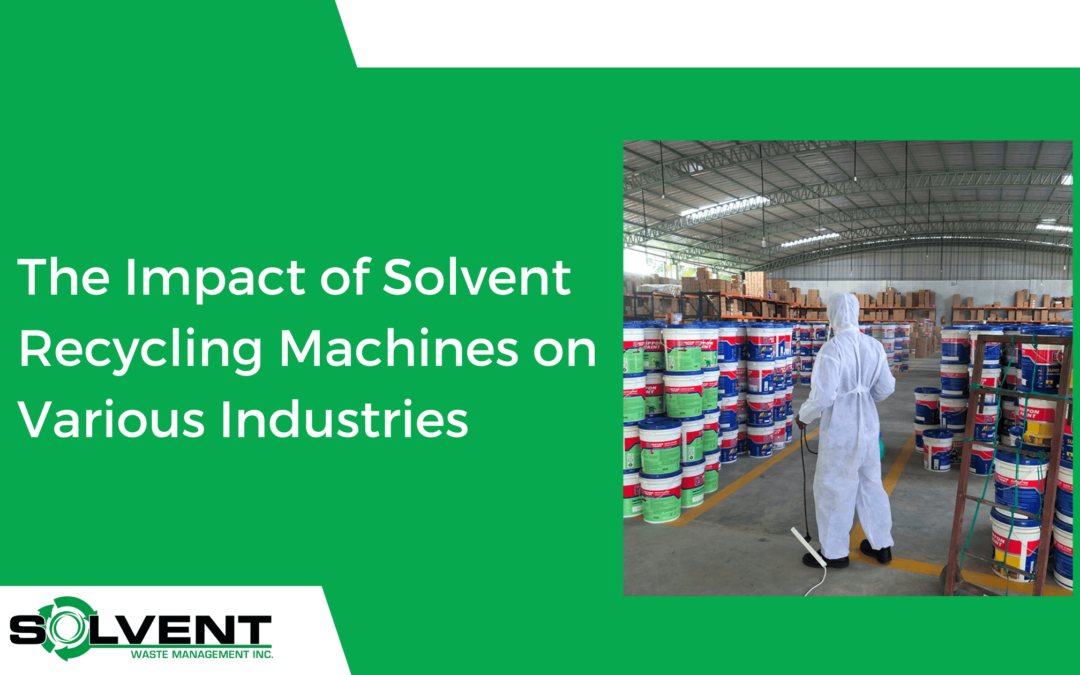Solvent recycling machines have revolutionized waste reduction and sustainability efforts across a diverse range of industries. These machines not only help businesses minimize their environmental impact but also save on costs associated with purchasing new solvents and waste disposal. In this blog post, we will explore the impact of solvent recycling machines on various industries through real-life case studies, showcasing the undeniable benefits and potential for widespread adoption.
Automotive Industry
The automotive industry relies heavily on solvents for various processes, including cleaning, degreasing, and painting. By implementing solvent recycling machines, companies in this sector have significantly reduced their waste generation and realized cost savings. For example, a leading automotive manufacturer achieved a 90% reduction in solvent waste and a 40% decrease in solvent purchasing costs after installing a solvent recycling machine.
Pharmaceutical Industry
Pharmaceutical companies use solvents for numerous applications, such as extraction, purification, and synthesis. A solvent recycling machine installed in a pharmaceutical facility resulted in a 75% reduction in waste and a 60% decrease in solvent procurement costs. Additionally, the company experienced improved environmental compliance and a reduced carbon footprint.
Chemical Manufacturing Industry
The chemical manufacturing industry is another sector that heavily relies on solvents. One chemical company introduced a solvent recycling machine to its production line and saw a 65% reduction in hazardous waste generation and a 50% decrease in solvent purchase costs. The company also experienced enhanced sustainability and reduced environmental risks associated with waste disposal.
Printing Industry
Solvents are a crucial component in the printing industry, used for cleaning and maintaining printing equipment. A large-scale printing company implemented a solvent recycling machine, resulting in an 80% reduction in solvent waste generation and a 45% decrease in procurement costs. The company also achieved improved environmental compliance and reduced emissions associated with solvent disposal.
Electronics Manufacturing Industry
In electronics manufacturing, solvents are used for cleaning circuit boards and other components. One electronics manufacturer installed a solvent recycling machine and experienced an 85% reduction in solvent waste, a 55% decrease in purchasing costs, and improved workplace safety due to reduced exposure to hazardous chemicals.
Paints and Coatings Industry
The paints and coatings industry depends on solvents for various applications, such as thinning and cleanup. A major paint manufacturer that adopted solvent recycling saw an impressive 70% reduction in solvent waste generation and a 60% decrease in purchasing costs. The company also experienced enhanced sustainability and a reduced environmental impact.
Aerospace Industry
The aerospace industry uses solvents for cleaning, degreasing, and corrosion protection. A notable aerospace company that implemented a solvent recycling machine achieved a 75% reduction in solvent waste and a 50% decrease in procurement costs. Additionally, the company improved its environmental compliance and workplace safety.
Conclusion
The case studies presented in this blog post demonstrate the significant impact solvent recycling machines have had on various industries. By reducing waste generation, lowering costs, and improving sustainability, these machines are revolutionizing the way businesses handle solvents. As more companies recognize the benefits and potential of solvent recycling machines, we can expect even greater adoption across numerous sectors, contributing to a greener and more sustainable future.

